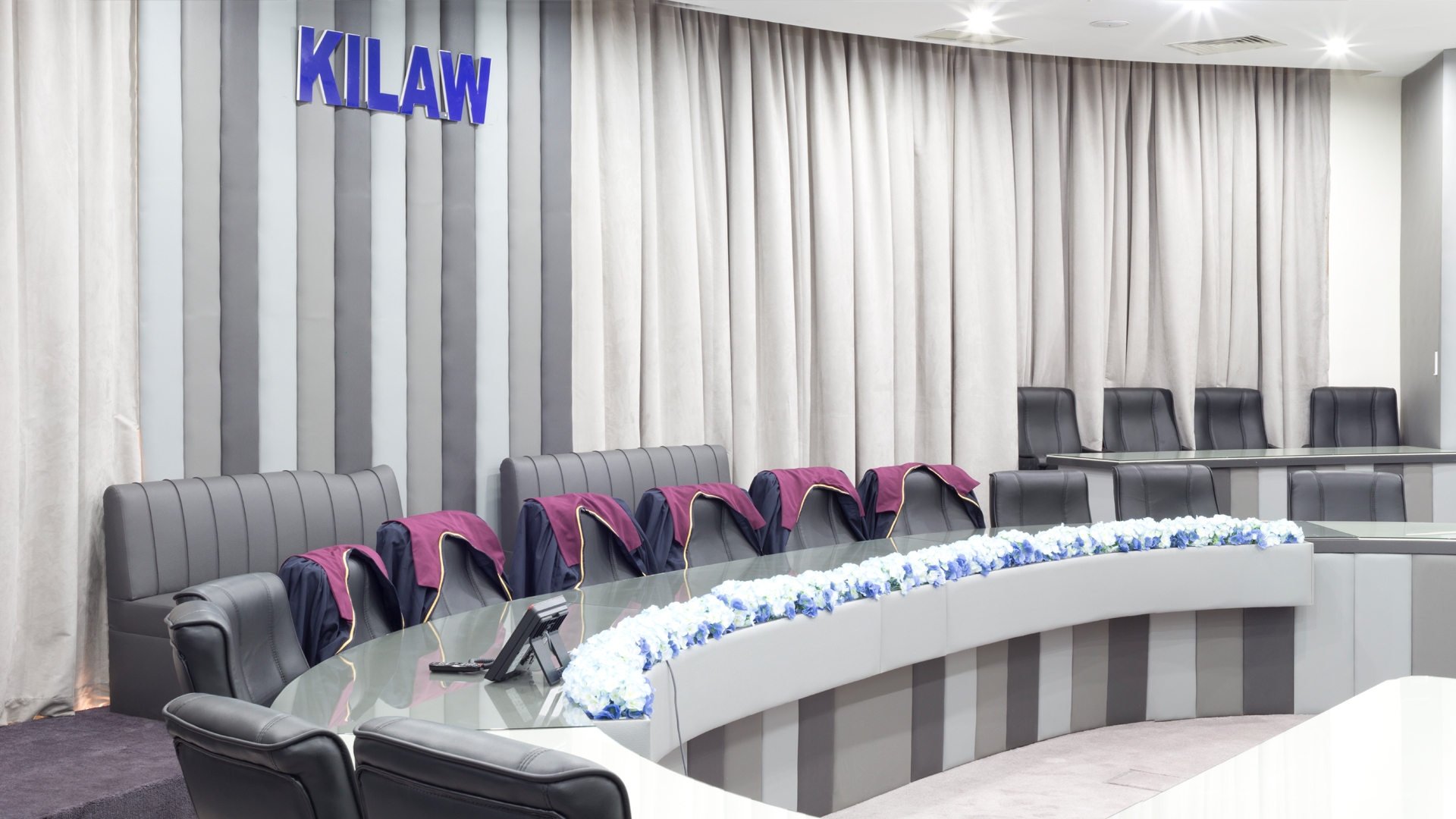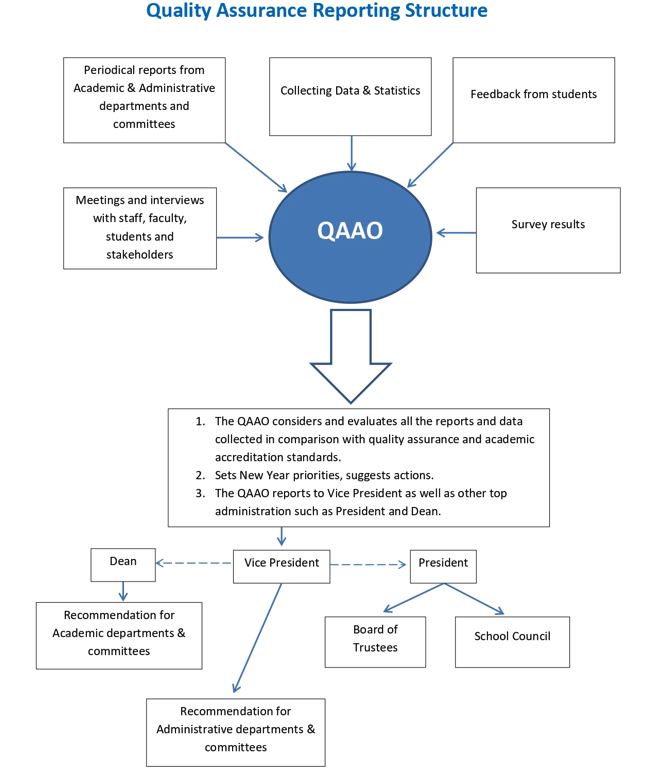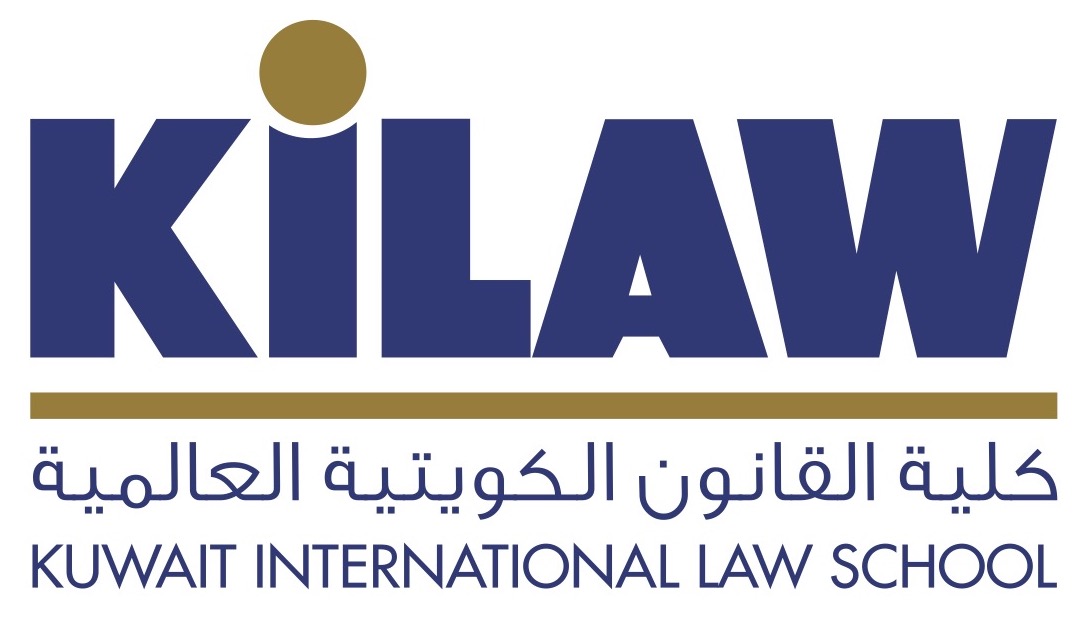
MANAGING QUALITY ASSURANCE
Quality assurance was a core concept from the outset of the school’s inception, therefore it was a key element when establishing the Advisory Committee and in informing School policies and processes relating to curriculum developments, staffing, regulations, recruitment and admission policies, committee structures and students’ skills development and learning outcomes.
Quality assurance policies and processes underpin the culture of continuous improvement at KILAW. The policies are reviewed regularly by the Quality Assurance and accreditation Office (QAAO), the School’s Council, the President and the Board of Trustees and where appropriate updated to reflect the perspectives of School’s departments, internal and external stakeholders’ opinions, and requirements of the different accreditation agencies. The Policies are comprehensive and cover aspects of the School functions, in conjunction with the Quality Assurance Handbook.
KILAW is committed to achieve excellence in legal education, with a critical thinking approach, excellence and quality in the development and delivery of its programs, service provision and research activities. This policy aims to underpin and ensure:
- The culture of continuous improvement at KILAW.
- The maintenance of the distinguished performance of the School towards excellence in legal education.
- The transparency in approach to quality assurance.
- The evolution of a culture for accomplishing quality at KILAW.
- The monitoring and assurance of quality for the purposes of self-assessment and self-improvement.
- The alignment of KILAW’s policies and procedures on quality with different local and international standards and directives.
- An appropriate quality assurance system is in place to realize the vision and mission of KILAW
1. Quality Assurance structure:
The KILAW’s quality assurance structure consists of:
- Board of Trustees: It is the highest authority in the school. It is responsible for overseeing adherence with quality policies, regulations and bylaws to ensure its implementation and review via periodic reports. The Board of Trustees takes the task of maintaining oversight of Governance and the quality of the School’s activities in teaching and research. It is responsible for overall policy and the monitoring and evaluation of implementation plans. It reviews to School’s activities and confirms continuing alignment with the law, regulations and its founding principles and mission.
- President: maintains oversight of the quality assurance policies and reports on compliance via regular reports to the Board of Trustees.
- School Council: has a broad membership and students are represented at its meetings. It monitors compliance across the different departments within the School, to ensure consistency and efficacy. The School Council debates, develops and reviews policies, standards and guidance to improve the level of working in all aspects of academic, administrative and financial functions and in the development and evaluation of quality and standards.
- Dean: Supervising schools’ and department’s academic plans, and following up these plans.
- Quality assurance and accreditation office: It ensures that the School formulates and adheres to policies in respect of quality assurance, and that the School is prepared to face institutional audits and programme accreditation.
- Planning Office: It provides regular updates to the President and School Council in relation to progress against the School Strategic Plan and produces an annual summary of the key priorities for the School.The Head of the office is a member of the QAAO team and performs quality assurance monitoring tasks with them.
- Academic departments: They assume executive and coordination roles under the supervision of the Dean and the School Council. Departmental Heads (whom SC members) coordinate the teaching schedule, propose the higher studies programmesand research topic, reflecting all aspects of quality standards and follow up on the implementation of the School Council policy.
- Reporting Structure:
- All academic and administrative departments and committees report directly to the QAAO by the end of each academic year. These reports demonstrate adherence to quality assurance policies and standards.
- QAAO considers these reports to determine compliance with the required standards and provide some suggestions to enhance strengths and remedy shortcomings, taking into account that the role of the Office is limited to giving advice rather than to direct the institution.
- QAAO reports directly to the Vice President as well as other top administration such as President and Dean.
- The School Council headed by the President considers the reports and make some decisions – if necessary- to improve the performance.
- As members of the SC, the Dean, the Assistant Deans, and the Head of Academic Departments and committees take the necessary actions to improve the performance and ensure the alignment with the required standards.
- The president asks for some amendments from the administrative departments and committees if required.
- As a member of the Board, the President reports to the Board of Trustees.
The QAAO provides facilitation service to staff and departments in order to ensure that all activities and practices are aligned with the quality assurance and accreditation standards.

2. The Policy:
The QA policy is divided into four parts:
- General Policy
- Programme-related Policy
- Faculty-related Policy
- Student-related Policy
General Policy
- All departments, units, offices are responsible for adhering by the quality assurance standards.
- The School periodically reviews all the policies and will introduce a number of amendments when necessary.
- Local and international accreditation: The QAAO follows an effective monitoring and assessment system to ensure that the School is ready to undergo internal and external review processes by quality assurance and academic accreditation agencies.
- QAAO provides an internal assessment includes ongoing monitoring and periodic self-assessment to provide assurance that work is delivered to an appropriate standard.
- KILAW ensures transparency in its approach to quality assurance by making documents and publications available to the public via its website and issuing hard copies of its Academic Guide to all staff and students.
- Although KILAW adopt a transparent policy and consequently published its documents as well as informing the public by different means and publications, confidentiality is an essential part of this policy for classified documents.
- The Deanship Committee provides a useful forum for further advice and guidance to the President and School Council in relation to staff and student experience at KILAW.
- Frequent communication is ensured by keeping staff and students fully informed of all quality assurance initiatives and ongoing developments via periodic open meetings with the president and School Council members, website, Academic Guide and social media.
- KILAW has a Quality Assurance Handbook and policies; it is debated and approved by school council and Board of Trustees.
- The School has a number of agreements with Associate Universities and these Universities are conducting a review every two years.
- KILAW recognizes the importance of maintaining academic relations and academic links with other Arab and international universities and institutions. It has adopted a policy of engaging with others via a range of agreements for academic cooperation with selected international universities and institutions. The purpose of these links is varied and includes academic consultation, assistance and support to enrich and improve the quality of the school’s education according to international academic standards and practices and to provide research and teaching opportunities for staff and students.
- KILAW is participating and supporting regional and international organisations to enhance quality legal education.
- KILAW is keen to be a member of local and international association and unions of law schools. These organisation work on improving legal education by bringing together representatives of member Law Schools across the world, exchanging information and experience in annual meetings in different countries, through which reports, conferences and lectures are proposed.
Programme-related Policy
- The school has an effective periodical process for the programme monitoring and review.
- On a macro scale, all programmes at KILAW are subject to external quality review via Associate Universities, the AAB, the PUC and the UK’s Quality Assurance Agency (QAA) to ensure the adherence to international standards.
- The learning outcomes of the school’s programmes and curricula have been designed and developed to align with the School’s mission to achieve excellence in legal education based on critical thinking and internationalization. These learning outcomes are reviewed within the annual review of the courses.
- Promoting widening access to KILAW’s programmes of study by targeting quality students from under-representative groups and supporting them in their application to the School.
- The School has adopted a clear policy for supporting the library, which is based on an open budget for the library’s books and resources. Staff and students are able to request books and other resources and these are considered favorably by the School Council.
Faculty-related Policy
- KILAW’s vision and mission statements clearly articulate the importance of faculty and post-graduate students engaging in high quality research that in turn provides research informed teaching within the School’s taught provision.
- KILAW supports academic freedom in principle and in practice. Faculty and students are encouraged to write academic research papers that accurately represent legal and social issues. Papers may be reviewed before publication but the purpose is to ensure academic integrity and quality.
- Peer observation of teaching is undertaken and international expert regularly visit the School and undertake class observations and deliver lectures on specific topics of relevance. Performance management of faculty that do not meet expectations is undertaken and where appropriate support to improve performance is put in place and kept under review by the Head of Department.
- Promotion of faculty is based on a transparent processes with faculty required to provide evidence of quality contributions in teaching, research and community activities. Feedback is provided to unsuccessful candidates.
- Teaching assistants are a unique feature of KILAW’s support for learning, teaching and assessment. Their role provides crucial guidance for all students, but is focused on students where their attendance/grades are of concern. The majorities of TA are fluent in English and Arabic, attend courses and are able to help students to deepen their understanding of the taught courses. They support staff in the prepare and use of Power point and other technologies and engage in research support.
- Providing opportunities for faculty to gain international experience in research is a driving element of the School. They encourage staff to participate in external conferences and seminars and provide generous financial support. The School also hosts an annual international conference which is a platform to quality research and research exchange experiences for staff and students.
Student-related Policy
- The school maintains a very strict faculty/student ratio (1:20) which is in line with best practice nationally and internationally.
- The Admission and Registration Deanship ensures the success of the processes related to recruitment, admission and registration/enrolment and provides regular updates to the School Council.
- Student admission criteria is pre-defined and based on policy that has been reviewed by the Admission and Registration Deanship and School Council and approved by the Board of Trustees.
- The School has rigorous entry requirements in place and ensures the recruitment of capable students who, in addition to academic achievement have demonstrated aptitude in English and Arabic languages.
- Transparent admissions that align with the school’s capacity (that is set annually by the Board of Trustees), in accordance with the School’s capability and facilities and market demands.
- The Deanship of Admissions and Registration liaise regularly with prospective and existing students to ensure they are clear about the systems in place to support them prior to and during their studies at KILAW.
- Three committees oversee assessment processes within the School. The Examinations Committee, the High Examiners Committee and the External Examiners Committee. They oversee and check the process of midterm and final exams and confirm compliance with the assessment polices.
- KILAW has put in place an external examiner system, their reports are considered by the School Council. External peer review is an important aspect of the production of law journal articles, master’s thesis and the QAA international quality review.
- KILAW applies strict policies with regard to cheating to eliminate the dishonesty, and maintain quality standards. The Student Affairs committee reviews all cases of cheating and where appropriate proposes changes to the policies and guidance issued to staff and students.
- Students are a main part of the quality assurance processes. They are represented in the main committees at school such as, School Council, Students Affairs Committee, Academic Committee and the Committee of Guidance and orientation. In addition, members of the Students Association who are elected every year by the students’ body at KILAW, deliver the students’ voice to KILAW administrative.
- Students automatically become members of the Student Association when they enroll at KILAW. KILAW provides financial and ethical support and oversees arrangements for the Student Assembly meetings that take place at least once a year.
- Students at KILAW have access to high quality academic services and support to ensure they are able to achieve their potential. Services include the admission office, registration office, students’ guidance office, students’ development and competitions department and student’s activities office, the Library and computing.
- KILAW facilitates exposure of its students to a special development programmes as well as opportunities to participate in internal and external annual competitions.
- Student feedback is a central part of Faculty and course review. At the end of each course two questionnaires are completed by the students – one focusing on the course and the other on the member(s) of staff that delivered the programme.
